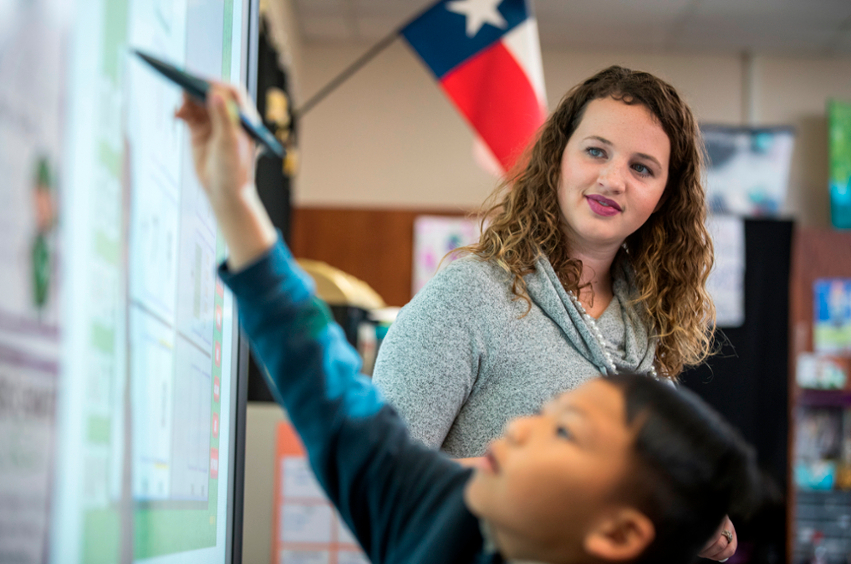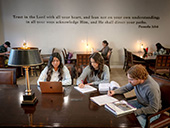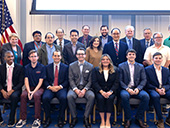Read to Succeed: Spotlight on DBU’s Literacy and ESL Program
This article is over six months old and may reference former titles for DBU faculty or staff, discontinued programs, or other details that have since changed. If you have any questions, please contact us at news@dbu.edu, or (214) 333-5172.

"God chose written language as the means for giving everyone the opportunity to know the Lord. How can we teach and make disciples if we can't communicate, if we can't read and write and share our relationship with our Lord and Savior to others?" Dr. Mark Martin, Program Director for the Master of Education in Reading, Master of Education in Curriculum and Instruction, and Master of Science in Learning Technologies.
The month of September was recognized as National Literacy Month, and while for you, dear reader, having the ability to read (as you are now), write, speak, and listen may seem to be nothing out of the ordinary, there are countless individuals in our world that may never experience the joy of literacy. It is because of this that Dr. Mark Martin and the team of educators in the College of Education work tirelessly to produce DBU graduates who are able to articulate and teach the gift of literacy to all.
Literacy, by definition, is having the ability to listen, speak, read, and write. The Program for the International Assessment of Adult Competencies (PIACC) states that it is all these aspects that allow us "to participate in society, to achieve goals, and to develop knowledge and potential."
What may come as a surprise to many is the fact that 21% of Americans are illiterate. This means that one in every five adults in the U.S. do not have the learned skills needed to be considered literate (National Center for Educational Statistics). Even more shocking than that, the 2019 National Adult Literacy Survey concluded that 70% of all incarcerated adults cannot read at the 4th grade level.
The Masters of Education in Reading (MEDRE) program at DBU aims to produce graduates that not only are able to address English as a Second Language (ESL) students and English Language Learners (ELL), but also individuals with learning disabilities that hinder their ability to read.
"Our DBU MEDRE graduating students are skilled, certified reading specialists who are trained to offer insights and strategies in helping all students improve and develop the listening, speaking, reading, and writing skills necessary for successful communication in our society," says Dr. Martin.
So why should this matter to us? As Christians, why is literacy so important? Being able to read and write, to communicate and comprehend, allows us to be able to function within the world to the full. Aside from that, though, simply put, "By giving students the ability to read well and understand what they read, we are giving them the key that unlocks the scriptures," says Dr. Martin. "We give them the ability to sit with God and read His Holy perfect words." What a beautifully priceless gift.
For Christians, teaching literacy has a weight the rest of the world may not have to acknowledge. Christian educators cannot afford to just teach a student to read good enough to make a decent score on a test. "Instead," Dr. Martin says, "we must teach them to read well so that they can delve into God's Word and develop a relationship through the perfect scripture He has given us."
DBU is proud to be the home of the Dorothy M. Bush College of Education which is recognized as one of only four colleges in Texas to receive national accreditation from The Council for the Accreditation of Educator Preparation. Together as the DBU family, we reflect on the true joy of being able to process the written scriptures and navigate life through the vital attributes of speaking, writing, listening, and reading. We do this, not just throughout National Literacy Month, but each and every day as we bask in the great privilege it is to know the Lord, to know His word, and to know and understand others.
Emmalie Ellis writes for the University Communications department at Dallas Baptist University.








